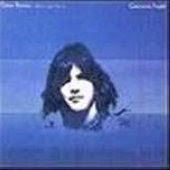 Return to the New West (Part 2)
Return to the New West (Part 2)It has been a while since I have turned to my planned series of posts on Uncut's Sounds of the New West CD, but here I am again finally, on to track 2, The Flying Burrito Brothers and 'Sin city'.
Of course there had to be a Gram Parsons song on here somewhere, as he is widely accepted as patient zero, the founding father of the whole alt-country movement. Parsons, who was born into a very wealthy family and hance could afford never to have to worry about real work, became the original cliche; he lived fast, died young, and left a good looking corpse, albeit briefly, before it was turned into a pile of ash under a soon-to-be-famous desert tree.
 es shoved where one doesn't normally shove ice cubes, as his friend tried desperately to revive him. In a great twist to the tale which you could hardly make up, his corpse was later stolen by his manager (as agreed with Parsons - what were they on when they came up with that plan?) and burned shortly after under a soon to be famous Joshua tree in the desert(Wikipedia article on Parsons is here while a homepage about him is here). Yes, that is a Joshua tree behind U2 there on the left; perhaps the reason they look so serious is that they can't find the actual spot where Parsons was burned but are sure they can smell something.
es shoved where one doesn't normally shove ice cubes, as his friend tried desperately to revive him. In a great twist to the tale which you could hardly make up, his corpse was later stolen by his manager (as agreed with Parsons - what were they on when they came up with that plan?) and burned shortly after under a soon to be famous Joshua tree in the desert(Wikipedia article on Parsons is here while a homepage about him is here). Yes, that is a Joshua tree behind U2 there on the left; perhaps the reason they look so serious is that they can't find the actual spot where Parsons was burned but are sure they can smell something.Overall, I have concluded that his music just takes some time to work its way into your head but, when it does, his influence and originality become all to apparent. In fact, perhaps what really made him click for me was hearing others (including people like Wilco and Whiskeytown, who were always going to be able to draw me in and make the appropriate polite introuctions, like old friends urging me to give the kid another chance) cover his work in more contemporary style (as on the covers compilation, Return of the Grevious Angel, seen below), helping to bring his songs to life in a more familiar way, but respectfully showcasing the excellence of his lyrics and songwriting. A great duet of Emylou Harris and Ryan Adams on 'Return of the grevious angel' can be found here.
Songs like '$1000 wedding' now seem like the story of a great movie waiting to be made
There was a $1000 wedding,
Supposed to be held the other day
But with all the invitations sent
The young bride went away
The groom saw people passing notes
Not unusual, you might say
But where are the flowers for my baby
I'd even like to see her mean old mama
And why ain't there a funeral, if you're gonna act that way
I hate to tell you how he acted
When the news arrived
He took some friends out drinking
And it's lucky they survived.....
This is high-grade gritty drama, far from old style country music. As a final clip, the footage below shows Evan Dando (who always strikes me as a fitting seeming heir to Parsons) playing this song:
I have not given up on Gram yet, even if he may have given up on me, and I have no doubt that his swaggering ghost haunts much music that I love, for which his debt to my musical wellbeing cannot be overstated, and might never be adequately repaid.
Click Here to Read More..
